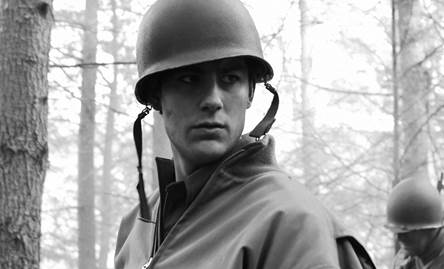BELLOWS FALLS, Vt. – “The Farm Boy,” a feature film by local filmmaker George Woodard, will be screening at the Bellows Falls Opera House on Oct. 7, at 2 p.m.
When George Woodard isn’t busy on the 200-acre family dairy farm in Waterbury, Vt., he turns his attention to making movies. An early love of local theater led him to Hollywood, where his experience in film production, screenplay writing, cinematography, and directing provided opportunities to expand upon his acting chops. But the need to return home to the farm brought him back to Vermont, where he oversaw the family business while juggling opportunities to act in the films “Time Chasers,” “Ethan Frome,” “My Mother’s Early Lovers,” “Nothing Like Dreaming,” “Mud Season,” and “America’s Heart and Soul,” as well as TV commercials.

Woodard’s first full-length feature film, shot in Vermont, starred Woodard’s son Henry as an 11-year-old boy. “The Summer of Walter Hacks” was a family affair, begun in 2004 and released in 2010, and was written and directed by Woodard. Featuring the sensibility of 1950s-era coming of age story set in rural New England, the film was shot in color and then transferred to black and white, the medium that Woodard prefers.
“The Farm Boy” is Woodard’s second full-length feature, and stars son Henry as an adult. He plays Calvin Dillard, a young man who drives a milk truck for his father in rural Vermont during World War II. He marries a girl named Mary (played by Grace Woodruff) he met at a dance, yet barely has time to settle into marriage when he’s drafted and sent to war in Belgium. While in Europe, he meets another woman, Renée (Coco Moseley), and his experiences with her change him in profound ways. Woodard filmed “The Farm Boy” on his Waterbury farm, parts of which resemble the pine forests of the Ardennes in Belgium, where one of the most famous World War II battles – the Battle of the Bulge – took place. For those scenes, Woodard managed to assemble a troop of World War II reenactors, some army trucks, and a bunch of fireworks. “It was a heck of a good time,” laughed Woodard.
Woodard takes many of his cues from classic American directors, such as John Ford, John Sturgis, and Anthony Mann, who all worked in a frank, direct way, that focused on the story rather than on elaborate stylistic tics that can obscure the narrative. Even Woodard’s choice to film in black and white is a nod to a certain era in American cinema. “Ford just put the camera there and let whatever was going to happen, happen,” Woodard said. “Lots of times if stuff is shot conventionally, the story comes through better.”
The story has two main acts: Calvin’s life in Vermont, and then his experiences in Belgium. For Woodard, capturing the realities of wartime accurately was paramount, and not just in battle, but also at home. “Most World War II movies don’t give enough home life,” he said. “A big hole was left in communities when men went to war. What Calvin left behind was just as important to the story as what he encountered in Europe. You can’t understand a character’s choices unless you know a bit of their history.” The movie was produced by Joan Brace O’Neal, who won acclaim for her 2001 documentary “A Moment in Time,” about the aftermath of a car accident that left 2 teenagers dead in Montpelier. “The Farm Boy” is also a bit personal for Woodard: it’s loosely based on his own parents’ experiences during World War II. “It’s a love story with action and adventure,” he said. “There’s a lot of heart to it, and it’s a lot of fun to watch.” Tickets can be purchased online at www.bellowsfallsoperahouse.com/whats-playing-2. For more information on “The Farm Boy,” visit www.hangingmudflapproductions.com.